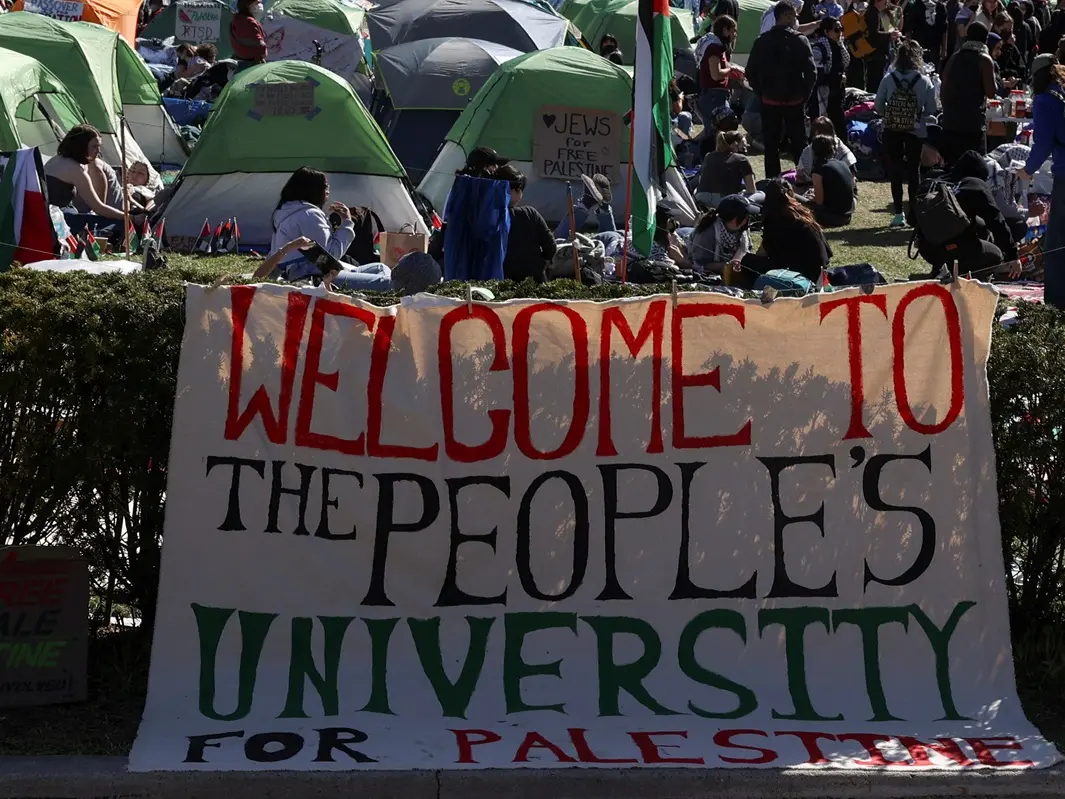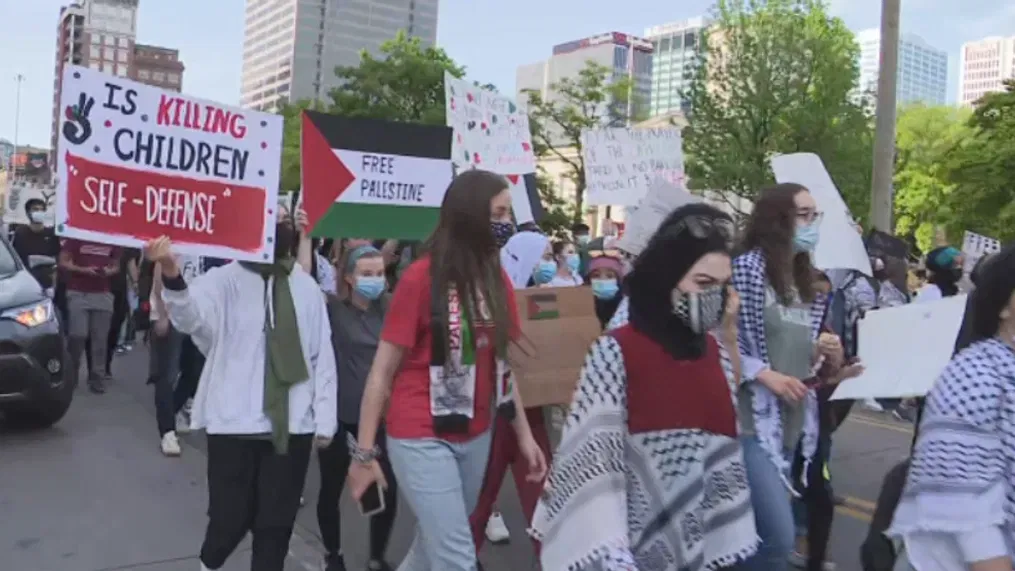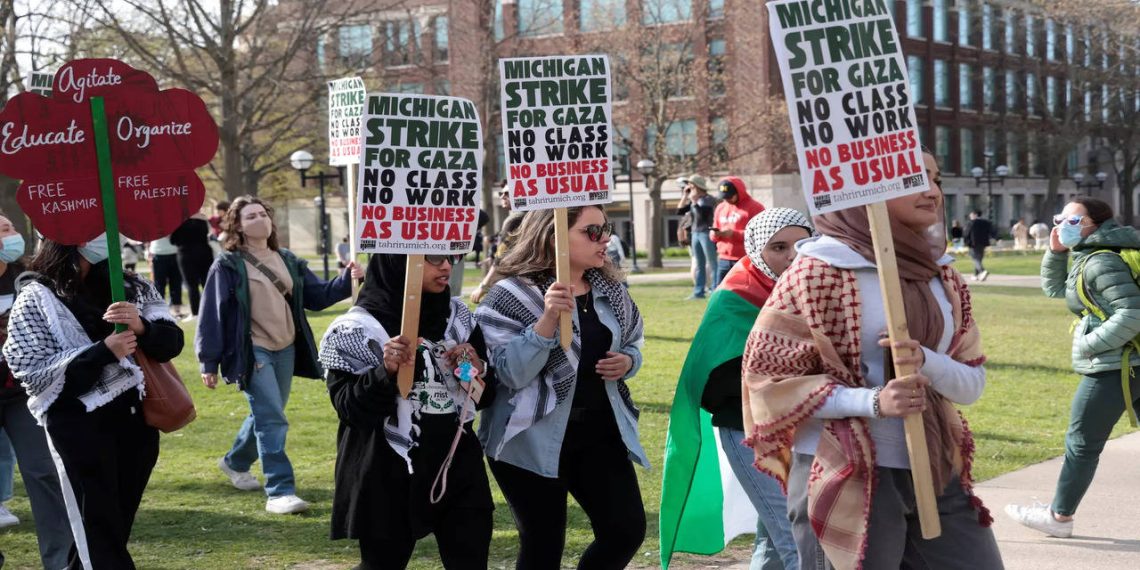Protests against Israel surged in Brooklyn and across U.S. universities, coinciding with Jewish Passover Seders, as demonstrators called for an end to civilian casualties in Gaza.
The demonstrations reflect a growing dissatisfaction with the course of the conflict between Israel and Hamas, which is historically significant given the U.S.’s alliance with Israel.

The protests have expanded beyond traditional rallies to encampments at universities, drawing participation from diverse groups, including Jewish and Muslim students and faculty.
These gatherings feature teach-ins, interfaith prayers, and musical performances, underscoring the depth of concern over the situation in Gaza.
However, the protests have not been without controversy. In Brooklyn, a standoff occurred when New York police began arresting people for disorderly conduct during a large street protest.
Critics, including the Council on American-Islamic Relations, condemned the use of police force, citing concerns about academic freedom.

The protests have also led to heated exchanges between pro-Palestinian and pro-Israeli demonstrators, particularly around Columbia University.
Amid allegations of antisemitism and harassment, civil rights advocates have raised free speech concerns over the arrests.
Despite the tensions, students and activists are pressing universities to take action. They demand divestment from Israeli interests and urge the U.S. government to condition military aid to Israel to improve the situation for Palestinians.





